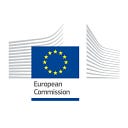Safe & Healthy: 5 facts you should know about cosmetics in the EU
Europeans enjoy the highest levels of consumer safety when using cosmetics. And if you think you don’t use cosmetics, we have some news for you.
Let’s start by clearing up a common myth: Cosmetics doesn’t mean make-up alone. Many cosmetic products are essential for our personal hygiene and we need them each day. They also substantially contribute to our health and well-being.
This includes the good old soap which is back in the spotlight as washing our hands well has become more important than ever during the pandemic, and also personal care products, like toothpaste, shampoo, deodorant, and sunscreen.
On average, people use between 5 and 15 cosmetic products in one day. Combined with the fact that we apply them directly to our skin and hair, and the severity of potential damage, it is no wonder that cosmetics is one of the key areas of consumer protection in the EU.
Thanks to EU legislation and the daily work of dedicated experts, Europeans enjoy the highest level of consumer safety when buying and using cosmetics.
Here are 5 ways the EU ensures that cosmetics that you use are safe, healthy and have the highest quality standards:
1. State of the art science protects you
We rely on the advice of an independent scientific committee dedicated to consumer safety. Leading scientists and experts work to ensure that cosmetic ingredients used in the EU are safe. Interested? Find out more.
2. 1600 (and counting) cosmetic ingredients prohibited in the EU — the largest blacklist for dangerous cosmetics in the world!
Safety first. That’s why we keep a close eye on substances that can cause harm if used in cosmetics. Once the scientific committee detects a potential risk to consumers, the substance is banned from the entire EU market (or restricted in its use and maximum concentration).
3. Cosmetic ingredients used to colour, preserve and act as a UV filter must have been found safe before you can use them
We carefully check that these special (and often powerful) ingredients are safe before authorising their use. About 250 cosmetic ingredients have been found safe to colour, preserve and act as a UV filter. Here again we rely on an independent assessment carried out by the EU Scientific Committee on Consumer Safety.
4. Claims about cosmetic products sold in the EU must be true
Any company that sells cosmetics in the EU has to be able to prove the claims they make with regard to the effects of their products. For instance, if a manufacturer sells a sunscreen that claims it provides a high level of protection (has a high sun protection factor), they must be able to prove their claim scientifically and provide results of non-animal safety tests and other data on request.
5. Know what you buy: ALL ingredients have to be listed on the product label
We spare no resources when it comes to ensuring transparency and trust in cosmetic products made and sold in the EU. One of the requirements we have put in place is that all ingredients in a cosmetic product must be listed on the label.
Allergic to a substance? Check it out — all you need to know is there!
While the facts above apply to the EU, they also help improve consumer protection globally.
Bonus #1: Since manufacturers have to respect these rules to sell their products in the EU, it is often economically more viable to export the same product (respecting the same high health and safety norms) to the rest of the world rather than preparing two or more versions of the same product. Moreover, our system of consumer protection in cosmetics works as a reference model and many countries around the world take inspiration from it for their own systems.
Bonus #2: Did you know? The EU was the first territory in the world that completely banned animal testing to demonstrate the safety of cosmetics. Since 2009, no animal testing for cosmetic purposes can be conducted within the EU. Since 2013, cosmetic products that have been tested on animals (even elsewhere in the world) cannot be sold anywhere in the EU. While some work remains in this area, including on developing more alternative methods to animal testing, we are proud of this groundbreaking achievement!
For more:
- EU cosmetics regulation
- Scientific and technical assessment of cosmetics in the EU
- Ban on animal testing for cosmetics purposes
- Regulation of sunscreen products
